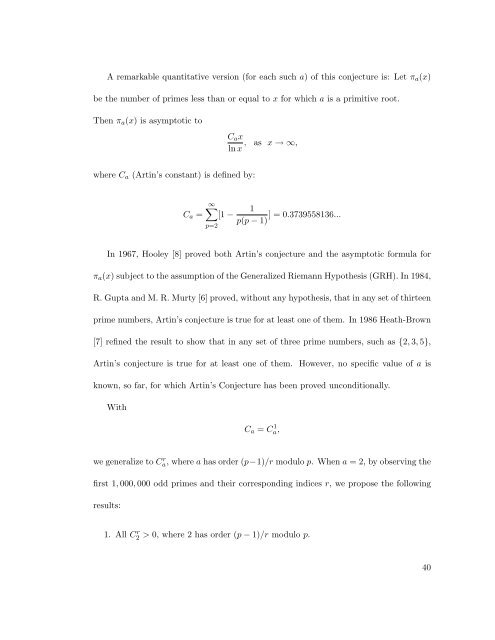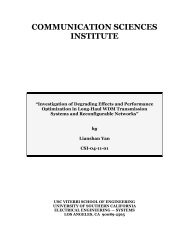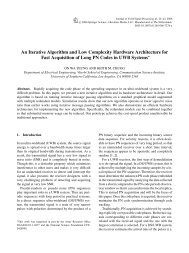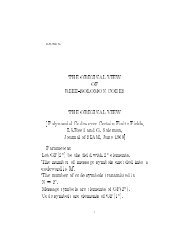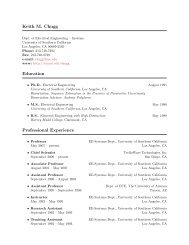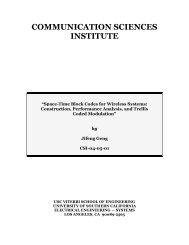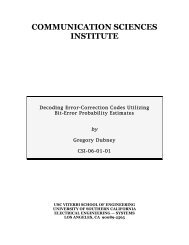Irreducible Polynomials Which Divide Trinomials Over GF(2). - The ...
Irreducible Polynomials Which Divide Trinomials Over GF(2). - The ...
Irreducible Polynomials Which Divide Trinomials Over GF(2). - The ...
- No tags were found...
Create successful ePaper yourself
Turn your PDF publications into a flip-book with our unique Google optimized e-Paper software.
A remarkable quantitative version (for each such a) of this conjecture is: Let π a (x)be the number of primes less than or equal to x for which a is a primitive root.<strong>The</strong>n π a (x) is asymptotic toC a x, as x → ∞,ln xwhere C a (Artin’s constant) is defined by:C a =∞∑ 1[1 −p(p − 1) ] = 0.3739558136...p=2In 1967, Hooley [8] proved both Artin’s conjecture and the asymptotic formula forπ a (x) subject to the assumption of the Generalized Riemann Hypothesis (GRH). In 1984,R. Gupta and M. R. Murty [6] proved, without any hypothesis, that in any set of thirteenprime numbers, Artin’s conjecture is true for at least one of them. In 1986 Heath-Brown[7] refined the result to show that in any set of three prime numbers, such as {2, 3, 5},Artin’s conjecture is true for at least one of them. However, no specific value of a isknown, so far, for which Artin’s Conjecture has been proved unconditionally.WithC a = Ca,1we generalize to C r a, where a has order (p−1)/r modulo p. When a = 2, by observing thefirst 1, 000, 000 odd primes and their corresponding indices r, we propose the followingresults:1. All C r 2 > 0, where 2 has order (p − 1)/r modulo p. 40


